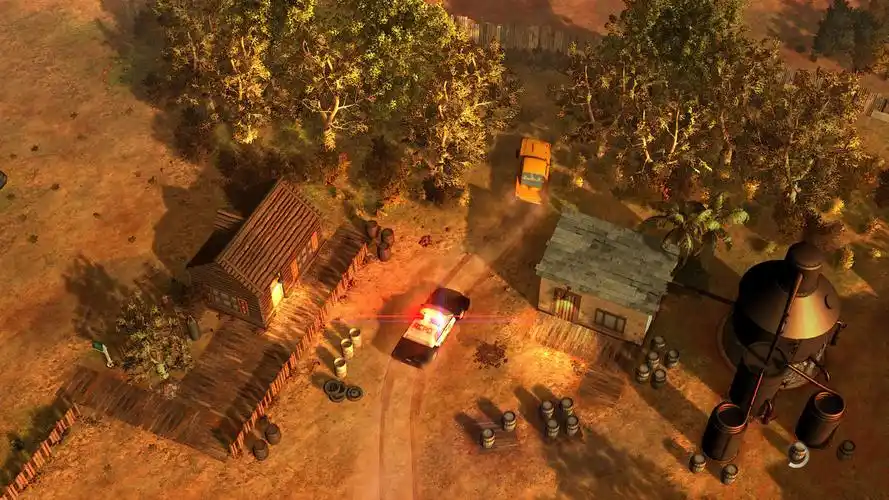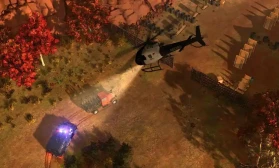Deep Dive into Game News: A Beginner's Guide to Staying Informed
Welcome to the world of gaming! Whether you’ve just unboxed your first console or are diving into the vast library of PC titles, you’ve entered a dynamic and ever-evolving community. A key part of truly engaging with this hobby is understanding the landscape, and that means getting your game news from the right sources. For a new player, the sheer volume of information can be overwhelming. This guide will break down the fundamentals of navigating video game journalism, helping you separate the hype from the must-know info.
Why Bother with Game News?
Before we dive into the "how," let's address the "why." Staying updated isn't just about knowing what’s cool; it’s about making informed decisions.
- Informed Purchases: Games are an investment of both time and money. Reviews, previews, and post-launch coverage help you understand if a game is right for you before you buy it, potentially saving you from disappointment.
- Community Connection: Gaming is a social experience. Knowing about upcoming updates, popular strategies, or major esports events allows you to participate in conversations with friends and online communities.
- Discovering Gems: Major blockbusters like Call of Duty or Elden Ring market themselves. Game news outlets are crucial for highlighting incredible indie games (Hades, Stardew Valley) or smaller titles that might otherwise fly under your radar.
- Understanding the Culture: Games exist within a larger context. News about industry trends, studio acquisitions, technological advancements (like ray tracing or DLSS), and important discussions about working conditions and representation help you understand the art form on a deeper level.
The Core Pillars of Game Journalism
Game news isn’t a monolith. It’s a spectrum of content types, each serving a different purpose. Recognizing them is your first step to becoming a savvy consumer.
1. Announcements & Reveals
This is the big, flashy side of the industry. An announcement is the first official word that a game exists. This often happens at major events like Summer Game Fest, The Game Awards, or a specific publisher’s showcase (like a Nintendo Direct or PlayStation State of Play). These are typically accompanied by a carefully crafted "announcement trailer" designed to generate maximum excitement.
- What to look for: Is it a CGI trailer (pure concept, no gameplay) or a gameplay trailer? This distinction is critical. CGI trailers sell a dream; gameplay trailers show you the product.
2. Previews & Hands-On Impressions
Months or even years after a game is announced, journalists are often invited to play a limited vertical slice or an early demo. Their written or video reports are called previews. These are not reviews. They are first impressions based on a controlled, non-final version of the game.
- How to read them: Look for descriptions of how the game feels to play. The journalist’s excitement (or concern) can be telling, but always remember the final product can change significantly.
3. Reviews
The most well-known pillar. Upon a game’s release, critics receive final code and publish their scored or unscored evaluations. A review should assess the game's mechanics, story, performance, audio/visual design, and overall value.
- How to use them: Find reviewers whose tastes align with yours. Don't just look at the score; read the text. A 7/10 from a critic who dislikes open-world games might be a glowing recommendation if you love them. Never rely on a single review. Aggregate opinions from multiple sources you trust.
4. Post-Launch & Patch Coverage
A game’s journey doesn’t end at release. Live-service games like Destiny 2 or Fortnite constantly evolve. Even single-player games receive patches to fix bugs, balance difficulty, or add new content. News outlets track these updates, explaining what they mean for players.
- Why it matters: This tells you if a troubled launch has been fixed (e.g., Cyberpunk 2077’s remarkable turnaround) or if your favorite game is getting a massive new expansion.
5. Industry News
This is the "meta" layer of game news. It covers business developments (Microsoft acquiring Activision Blizzard), studio formations and closures, technological breakthroughs, and crucial reports on labor practices and workplace culture ("crunch").
- Why it matters: This news shapes the entire industry. Understanding it helps you see the bigger picture behind the games you love.
Navigating the Modern News Landscape: Tips for New Gamers
The days of getting all your news from a single magazine are over. Here’s how to build a healthy information diet.
-
Curate Your Sources: Don’t just follow the biggest outlets. Find a mix:
- Major Publications: IGN, GameSpot, Eurogamer (great for broad coverage).
- YouTube Analysts: Channels like Digital Foundry (technical analysis), Skill Up (in-depth reviews), and ACG (detailed buyer's advice) offer fantastic deep dives.
- Podcasts: Kinda Funny Gamescast, The Nextlander Podcast, and GI Show offer weekly news discussions with personality and humor.
- Social Media: Follow developers, publishers, and trusted journalists directly on Twitter or Mastodon for real-time updates.
-
Be Aware of Hype and Marketing: The line between advertising and journalism can sometimes blur. Recognize that a "exclusive first look" is often a marketing deal. Always ask: "Who is benefiting from this message?"

-
Identify Your Biases (and Theirs): You have genre preferences. So do journalists and content creators. Understanding a reviewer's bias (e.g., "I generally dislike turn-based combat") helps you contextualize their opinion.
-
Engage Critically: Don’t just consume information passively. Read the comments (carefully!), discuss with friends, and form your own opinions. If a headline seems inflammatory, read the full article before sharing it.
-
Avoid Toxicity: The gaming community is passionate, which is mostly a good thing. However, it can sometimes spill over into toxic negativity. It’s okay to be critical of a game or a business practice, but focus on constructive discussion. It’s also perfectly okay to like a game that others dislike.
Staying informed about video games should enhance your enjoyment, not become a chore. By understanding the different types of news, curating a list of trusted sources, and engaging with content critically, you’ll be equipped to navigate the exciting, complex, and rewarding universe of gaming. Now, go play something















